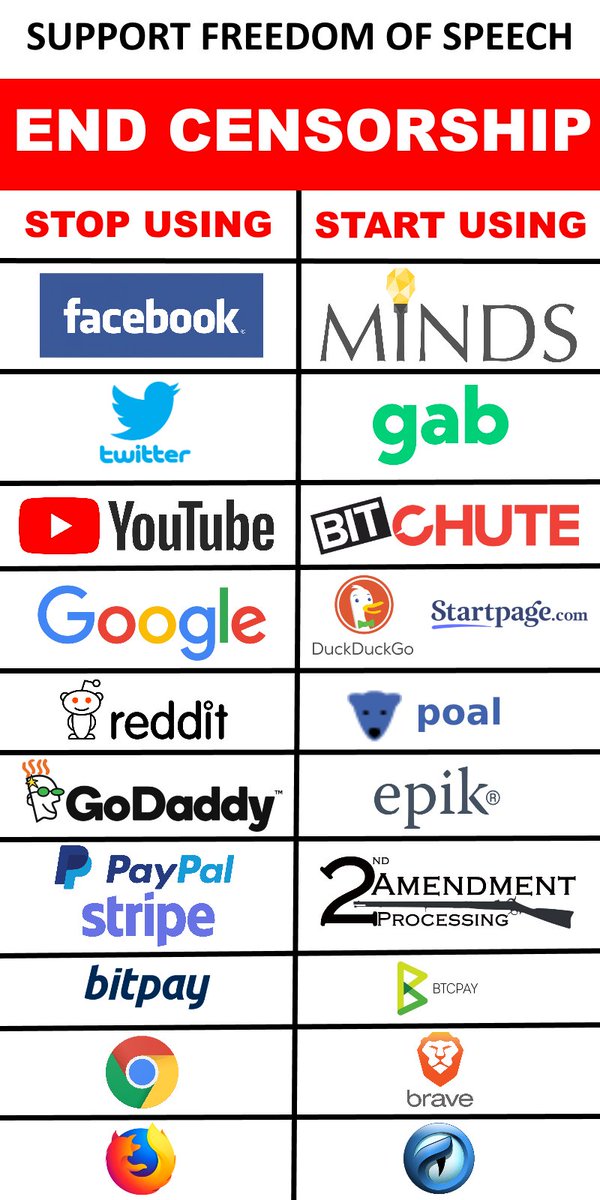When I wrote a blog about the Analyst Loneliness Syndrome a few weeks ago, I knew I wasn’t talking about isolated cases. However, the magnitude of readers’ responses have completely knocked me out. It is bitter-sweet mixed feeling of sadness and joy that you nailed something right, but you feel sorry that so many people are suffering from this syndrome. So I decided to talk to some of those who contacted me about that blog and to write extension of original post. This time about one of the three core factors of analytical loneliness: the management side of things.
The classic HR maxim says: “Employees don’t leave companies, they runaway from their superiors.” Although I do not quite agree with this generalization, I have to admit that in 4 out of 5 cases when I changed my job, it was true (this is my greeting, Rasto, you are the exception). One can leave boss behind for a variety of reasons, but in most cases it’s a combination of some of the following “evergreen’s“: He can’t appreciate my work; He does not understand the area and therefore I get mostly nonsense tasks; He does not believe me and hints me so; No inspiration or development from him, I only rot; His/her moral standards and deeds are in deep contrast with my beliefs.
Certainly, managerial superficiality and incompetence can affect you in almost every industry, but I would like to specialize in a typical example of this ailment in Data Analytics and Data Science. The traditional managerial characters have gained some additional spicy ingredients in this industry. After all, judge for yourself, here are 4 TYPES of MANAGERS that don’t understand analytics:
1] Don’t drag me into details
 Managerial Profile: It’s incredible, but even today there are still many companies where data analysts is “stuck” under the Head of Business or Marketing. It is often a tragic consequence of widely spread belief that data can significantly influence company’s revenue. As a result, analysts are moved under the Head of business or marketing to make this influence happen . However, these are usually managers who have a mathematics aversion, developed already at their (primary or secondary) school. Anything more complicated than percentages leave them restless. Simple numbers like sum and average (of course, they only mean arithmetic average) ok, but everything else is already far too complicated. Any statistics beyond the correlation are just “academic curls” (or crap). Their phobia from numbers and more sophisticated analyses comes from the fact that they have never understood this area, are not in control of it and thus are afraid of it. They don’t believe in the power of calculations nor AI, they solve everything intuitively and on the basis of proven approaches (read as: it worked once in the past). He prefers human speech as communication, simplifies every schema or spreadsheet into 2-3 sentences. However complicated the analysis is, at the end everything has to end up in Excel, which can be filtered by columns, and must not be more than 50 lines. When you try to “dive into” the results of your work, (s)he will tell you “Let’s do not get too technical” (just tell me the essence)
Managerial Profile: It’s incredible, but even today there are still many companies where data analysts is “stuck” under the Head of Business or Marketing. It is often a tragic consequence of widely spread belief that data can significantly influence company’s revenue. As a result, analysts are moved under the Head of business or marketing to make this influence happen . However, these are usually managers who have a mathematics aversion, developed already at their (primary or secondary) school. Anything more complicated than percentages leave them restless. Simple numbers like sum and average (of course, they only mean arithmetic average) ok, but everything else is already far too complicated. Any statistics beyond the correlation are just “academic curls” (or crap). Their phobia from numbers and more sophisticated analyses comes from the fact that they have never understood this area, are not in control of it and thus are afraid of it. They don’t believe in the power of calculations nor AI, they solve everything intuitively and on the basis of proven approaches (read as: it worked once in the past). He prefers human speech as communication, simplifies every schema or spreadsheet into 2-3 sentences. However complicated the analysis is, at the end everything has to end up in Excel, which can be filtered by columns, and must not be more than 50 lines. When you try to “dive into” the results of your work, (s)he will tell you “Let’s do not get too technical” (just tell me the essence)
Implications for your work: If you work for such a manager, you will be probably having a very frustrating working life. Since this kind of managers never did any analytical work, (s)he doesn’t know what IS real and what’s NOT. Neither in terms of procedures and results, but especially not in terms of time you need. So get ready to receive ridiculous tasks in gallows deadlines (what could take so long, right?). He has intuitive expectations about every assignment he gives you. If you fail to match it with real data, a tough week is waiting for you. No matter how thoroughly you prepare your analysis output, (s)he will take one or two of the most obvious (= most primitive) conclusions, thereby gradually discouraging you from coming with more sophisticated procedures first place. Sooner or later, there will also come attempts to censor “illogical” analysis outcomes. If it is necessary to present to “seniors” conclusions, (s)he will let you do it (while throw half of the slides out of deck as useless). Because if the top management did not like it by chance, (s)he will drown you with “it not making sense even to him/her”, but it just happen to be the calculation result. In the area of expert or personal development, you are down to pure fate of Robinson Cruse.
What should you do about it: I hate to be an evil prophet, but if you are serious about your analyst career, run away from there. In fact, this kind of manager is unrealistic to improve, because he considers more complicated analytics to be a necessary evil that suits him only when it confirms his intuitive hypotheses. Otherwise it is unnecessary “trying to look smart” that has no support in (his/her) reality. The only alternative to fleeing would be to attempt a coup d’état (whistle-blow him to a higher level of control and they might exchange him). But honestly, this kind of managers have a stiffer root and they have more “merits” than you have of convincing arguments. So sooner or later you just leave (with great relief).
2] Scared rabbit
 Managerial Profile: This type of manager stems from the first type and often represents a generational shift or personality development from “Don’t-drag-me-into- details” type. What remains the same, (s)he never did an analytical work himself, so things are not understood. The “move forward”, however, is that they do not reject a more sophisticated analysis because it has come upon them that they cannot do without it anymore. To this “improvement” he was pushed most likely by the CEO / shareholder attitude or the fact that he noticed all the competitors around already using analytics, so we must have it, too. However, as (s)he does not understand things him/herself, he is only trying to follow very elementary steps, often mimicked from professional conferences or buzzwords (anybody Big Data?). (S)he is stiff whenever you enter her/his office, because (s)he knows that the debate with you will revolve around an important subject (s)he doesn’t control. Nevertheless, in order to survive (s)he must feed to levels about him/her (who forced the analytics first place) the illusion that (s)he is not only interested in analytics but also orientates well in it.
Managerial Profile: This type of manager stems from the first type and often represents a generational shift or personality development from “Don’t-drag-me-into- details” type. What remains the same, (s)he never did an analytical work himself, so things are not understood. The “move forward”, however, is that they do not reject a more sophisticated analysis because it has come upon them that they cannot do without it anymore. To this “improvement” he was pushed most likely by the CEO / shareholder attitude or the fact that he noticed all the competitors around already using analytics, so we must have it, too. However, as (s)he does not understand things him/herself, he is only trying to follow very elementary steps, often mimicked from professional conferences or buzzwords (anybody Big Data?). (S)he is stiff whenever you enter her/his office, because (s)he knows that the debate with you will revolve around an important subject (s)he doesn’t control. Nevertheless, in order to survive (s)he must feed to levels about him/her (who forced the analytics first place) the illusion that (s)he is not only interested in analytics but also orientates well in it.
Implications for your work: The consequences are similar to situation when you have to get out of a dark room filled with things. (S)he only progresses slowly through the familiar outlines, (s)he first gropes everything thoroughly to make sure we don’t bump into something hard.As a result you will only get elementary assignments, everything will have to be tested in a small pilot (= no effect anyone could notice). Concept that to you train a model first on 1,000 people and then scale to 100,000 doesn’t make sense, does not ring a bell with her/him. Therefore, most projects will die after the pilot. He’ll never fight for better software or a more powerful computing engine, “let’s try first with what we have. When we do, then we can ask for more money.” (S)he’s too soft, because (s)he can’t steer you by essence (since (s)he doesn’t understand it) and so (s)he will try to do it in a moderate way. You won’t get strong decisions or quality feedback from them. Do not expect a vision where to follow, you often will be firefighters of issues that fell from top (and which (s)he cannot conceptualize and prioritize). Since (s)he is uncertain in your area, he will explain everything from Adam (sometimes repeatedly, as it has been overwritten by other issue in his/her head). Most probably he will never let you present the results of your work, so that it is not revealed to leadership that he does not understand even half of what you do.
What should you do about it: If you do not mind (or even prefer) that this kind of managers isolate you from contact with the top management, you can survive in this setting quite comfortably. However, you will have to educate your direct superior continuously (sometimes repeatedly on the same topics). Do not expect any career growth or expert development, at most you will be left with the space to self-tune. As a intermediary station, this is not a completely unbearable. But primitive and repetitive tasks and professional stagnation will catch you up sooner or later. If you have lived with such a manager for more than 3 years, look around where your peers have moved. Your train might be running away.
3] When we in ’95 did this …
 Managerial Profile: It is a manager who once worked as an analyst. Of course, when data analysis meant OLAP and mainly SQL data reporting. (S)he didn’t get too wild with predictive models, Monte Carlo simulations, or neural networks. So (s)he did not realize that data analytics is done completely differently today. In addition, his/her abilities are more of a memory-optimism that is often transformed into “When we tried this way in ’95, it worked”. In a sense, this type of manager is more dangerous than the first 2 named types. If some tries to convince you of something that is true, it is always worse when (s)he thinks being right rather than being not sure about the issue. In addition, this type of manager wants to be involved in every detail because he remembers that it was exciting to reveal new connections (maybe (s)he is nostalgic about it even). In fact, (s)he does not realize that “is no longer playing the same league as the young ones”.
Managerial Profile: It is a manager who once worked as an analyst. Of course, when data analysis meant OLAP and mainly SQL data reporting. (S)he didn’t get too wild with predictive models, Monte Carlo simulations, or neural networks. So (s)he did not realize that data analytics is done completely differently today. In addition, his/her abilities are more of a memory-optimism that is often transformed into “When we tried this way in ’95, it worked”. In a sense, this type of manager is more dangerous than the first 2 named types. If some tries to convince you of something that is true, it is always worse when (s)he thinks being right rather than being not sure about the issue. In addition, this type of manager wants to be involved in every detail because he remembers that it was exciting to reveal new connections (maybe (s)he is nostalgic about it even). In fact, (s)he does not realize that “is no longer playing the same league as the young ones”.
Implications for your work: Perhaps the biggest risk of this type of managers is micromanagement. By living in belief that they understand the area and by having nostalgic memories of the times when they did something real with the data, they will seize every opportunity to “engage in the project.” This can sometimes go so as far as to “volunteer to help” and take parts of the project on their shoulders. (what is to be avoided by far, if for nothing else at least to meet the project deadline). Speaking of those deadlines, the second major risk of working with such a manager is unrealistically optimistic time-frames. After all, when we did it in the 95s, it took just … The biggest risk in the long run is that it will slow down (or “torpedo” by expert “arguments”) your introduction of the modern trends (to keep up with you). Maybe (s)he won’t even do it consciously, but if you take two steps back, after a few years you’ll find that you are more or less spinning in a vicious circle.
What should you do about it: For some people, such a job can be comfortable and they let themselves to be fooled that it might have turned out much worse off (see the first and second type of manager). If you are at the end of a career or are among those who prefer traditional to innovative, just enjoy a comfortable life there. However, if most of your working life is still ahead of you, you need to foster space for professional growth. And the pace should at least match the market growth to avoid becoming “unnecessary junk in the labor market”. Therefore, I recommend that you sit down with such a manager and ask for autonomy: part of your working time (e.g. 1 day a week) to test new trends (which (s)he does not hints you to). If the manager does not agree, (s)he is probably well on his/her way to transform into Type 1], and so should your answer to it be in the spirit of advice for that type (see above).
4] Jules Verne
 Managerial Profile: To avoid wrong impression that a manager is a problem only when (s)he knows less about the issue than you do, there is also the opposite case. I personally hate the principle, when the best surgeon is nominated to be the hospital director, with the argument that others appreciate and respect him. Regrettably, even in analytics, the most skillful (or the most powerful) analyst becomes a team leader or department manager. It happens so often because the levels of control over it are some of the first three types, and so they need someone to cover the technical side of things. Jules Verne is a type of manager who once was Data Scientist or at least a sophisticated data miner. After (s)he stops officially being responsible for direct performance, and is charged with task to manage other analysts, often one of the following things usually happens: 1) Becomes lazy and realized that (s)he no longer wants to return to writing queries or code (resulting in a gradual loss of touch for analyst’s work) or 2) will finally take the chance to do those cool types of analysis that the nobility did not allow him to do before. Often both of these transform into a non-critical acceptance of “hype news” in the industry. After all, he also wants to brag on the beer with other data managers what cool things we are in our company. As the consequence the journey becomes a goal. Trying this-or-that is more important than making something easier to really work. While (s)he is no more responsible for time spent on the individual steps, rather (s)he already determines the strategy for future.
Managerial Profile: To avoid wrong impression that a manager is a problem only when (s)he knows less about the issue than you do, there is also the opposite case. I personally hate the principle, when the best surgeon is nominated to be the hospital director, with the argument that others appreciate and respect him. Regrettably, even in analytics, the most skillful (or the most powerful) analyst becomes a team leader or department manager. It happens so often because the levels of control over it are some of the first three types, and so they need someone to cover the technical side of things. Jules Verne is a type of manager who once was Data Scientist or at least a sophisticated data miner. After (s)he stops officially being responsible for direct performance, and is charged with task to manage other analysts, often one of the following things usually happens: 1) Becomes lazy and realized that (s)he no longer wants to return to writing queries or code (resulting in a gradual loss of touch for analyst’s work) or 2) will finally take the chance to do those cool types of analysis that the nobility did not allow him to do before. Often both of these transform into a non-critical acceptance of “hype news” in the industry. After all, he also wants to brag on the beer with other data managers what cool things we are in our company. As the consequence the journey becomes a goal. Trying this-or-that is more important than making something easier to really work. While (s)he is no more responsible for time spent on the individual steps, rather (s)he already determines the strategy for future.
Implications for your work: The assignments become increasingly confusing, because “Try to plug in a neuron net and let’s see what it brings.” Of course, half-successes go into drawer immediately to free up the runway for yet another new approaches to try. The result is a frequent change of priority and a gradual absence of a sense of real effect. The absence of value added gets noticed soon also by the “those up”, as will the time pass working in the Jules Verne’s team also means an increased risk that some organizational change will wipe out the entire team from Earth’s surface (read org chart) without any warning. At the same time, this kind of managers push their people into the position of generalists rather than specialists, which must not necessarily suit everyone well. Projects’ track record might look impressive in CV, but when you gonna by interviewed by someone who really did that (and not just tried as your team did), you will badly grill on your own barbecue stick.
What should you do about it: If you are JUNIOR in this area, it is paradoxically more advantageous for you to stay for a few years. Getting a broad (and shallow) outlook at the beginning of a career is not necessarily a bad choice. However, do not take too high a mortgage so that you do not bleed when your team suddenly ceases to exist one nice morning. If you are a SENIOR, confront the manager with the flicker that (s)he shows. Give him/her a feedback that you want to finalize the projects and that one new idea a week a probably enough. If he doesn’t understand or laugh at you, go to his supervisor to describe the situation and say either HIM/HER (or YOU). Both answers will be the right choice for you. If you are the first to do this, you probably save the rest of the team, but you will not regret the possible departure (possibly with handsome severance pay to get rid of you quickly).
Have you stumbled across one of these 4 types in the workplace? Have you ever experienced yet another type of dysfunctional Data Manager? Share your impressions at info@mocnedata.sk. I keep my fingers crossed for you to avoid those types of people. And if you happen to meet them, try to follow the advice from this blog. Bon voyage!


 You may or may not have come across the term Alt-tech. Sparing you with too much of the details, Alternative-Tech scene (or Alt-tech) is movement that tries to create alternatives to digital Goliaths of Google and Facebook type. The underlying motivation behind building alternatives to digital mega services is to “bring back freedom to internet” (read as addressing whatever injustice the big players had done to internet life in their rise to dominance). Free speech and anit-censorship is most often cited propeller of the movement. The argument goes that you can’t really access if Google search is returning the right thing if there is no real alternative to, ehm do you hear me saying, “googling” first place. One of the typical “comparing banners” is attached here:
You may or may not have come across the term Alt-tech. Sparing you with too much of the details, Alternative-Tech scene (or Alt-tech) is movement that tries to create alternatives to digital Goliaths of Google and Facebook type. The underlying motivation behind building alternatives to digital mega services is to “bring back freedom to internet” (read as addressing whatever injustice the big players had done to internet life in their rise to dominance). Free speech and anit-censorship is most often cited propeller of the movement. The argument goes that you can’t really access if Google search is returning the right thing if there is no real alternative to, ehm do you hear me saying, “googling” first place. One of the typical “comparing banners” is attached here: Managerial Profile
Managerial Profile Managerial Profile:
Managerial Profile: Managerial Profile:
Managerial Profile: Managerial Profile:
Managerial Profile: